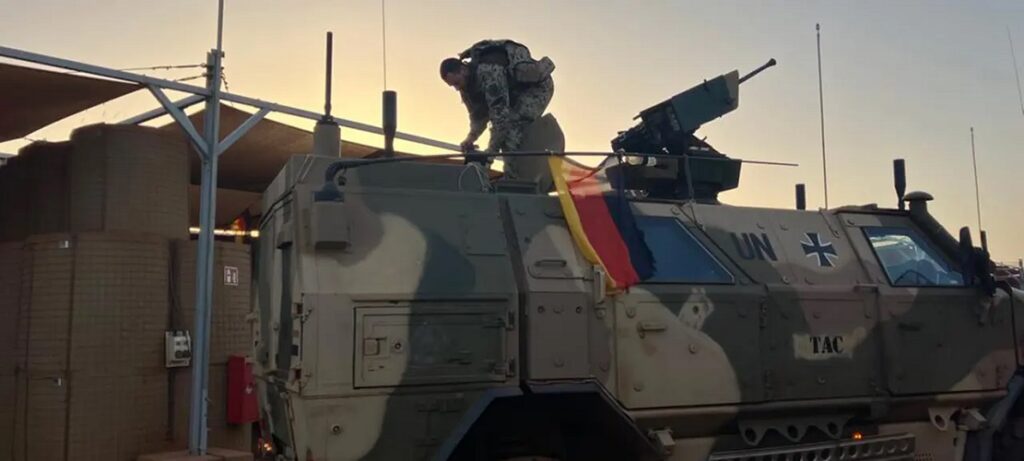
Dangerous Return
By the end of the year, the German Bundeswehr must completely withdraw from Mali. The poor security situation poses challenges for the soldiers and becomes a major challenge.
Captain Mathias was having breakfast when the alarm sound, which pierced through his bones, abruptly ended his meal. Heavy explosions and gunfire could be heard from the Malian army base just a few hundred meters away. Immediately, the 29-year-old gathered his mountain infantry platoon and sent his comrades to their positions to defend against a possible attack on the German camp. That is exactly what his object protection team is responsible for.
Stray bullets whizzing past
Captain Mathias himself rushed to the watchtower, called “Watchpost” by the soldiers, at the main entrance of the camp. “When I arrived there, I saw three large smoke clouds directly opposite in the FAMA camp and heard the sounds of combat,” the soldier reports. The battle in the Malian army camp, FAMA, was so fierce that he could occasionally hear stray bullets whizzing past his head while on the lookout. “You don’t see anything, you just hear something. It’s like a faint buzzing through the air. Others describe it as bird chirping,” Mathias explains. “But visually, it’s not observable because it’s simply too fast.”
Since this “bird chirping” poses a potentially deadly threat, he and his comrades initially ducked down and took cover. Later it would be revealed that one of the projectiles, most likely from an AK47 assault rifle, had hit a roof. No one in the German camp was injured.
Germans not a direct target
All of this happened in the early morning hours of September 8th: at least two suicide bombers had turned their cars into bombs and driven them into the Malian camp – the subsequent firefight lasted for several hours. The traces of devastation are still visible today. This incident highlights how the security situation in northern Mali, specifically in Gao outside of the German camp, is deteriorating.
“I can see that we are not an immediate target. This is different from Afghanistan. However, we can be affected by indirect consequences at any time,” explains Bernd Schütt, the commander of the German Armed Forces Operational Command, responsible for all military missions abroad, in an interview with ARD in Gao.
Possible collateral damage
Indeed, all individuals familiar with the situation consider a direct attack on the Germans to be extremely unlikely. Why would the terrorists, mostly associated with al-Qaeda, waste their resources attacking the already withdrawing UN peacekeepers?
Major Felix, the company commander of the object protection force, also sees the risk that the Germans could be unintentionally affected by combat operations as collateral damage. “Our biggest challenge is that the situation outside is not predictable, not foreseeable,” says the Major.
No UN patrol missions
Not helpful for a clear picture of the situation is the fact that the Malian military currently does not request UN peacekeepers’ patrol missions. Presumably, they want to operate in the Gao region themselves or at least plan to do so. This is evident as the Malian army is visibly increasing its efforts to combat terrorist groups in northern Mali, and it is well known that they rely on Russian Wagner mercenaries for this purpose.
However, the complex network of terrorists has recently expanded its influence. The fights have intensified alongside the withdrawal of the peacekeepers, including fights for vacant UN camps.
In even more remote locations of the UN peacekeeping mission MINUSMA, the situation is even more complicated than in Gao: because the soldiers cannot simply fly out from there, numerous peacekeepers are simply trapped. It is still unclear how the UN will evacuate them from the country by the end of the year
